LCHP Podcast: Then & Now
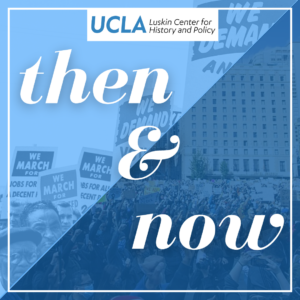 then & now, a podcast of the UCLA Luskin Center for History and Policy, connects past to present, using historical analysis and context to help guide us through modern issues and policy decisions. Every other week we interview historians, policymakers, and thought leaders about what happened then, and what that means for us now.
then & now, a podcast of the UCLA Luskin Center for History and Policy, connects past to present, using historical analysis and context to help guide us through modern issues and policy decisions. Every other week we interview historians, policymakers, and thought leaders about what happened then, and what that means for us now.
Subscribe today to be the first to hear new episodes!
Listen on Spotify
Listen on Apple Podcasts
Listen on TuneIn
Listen on iHeartRadio
Listen on Google Podcasts
Listen on Pandora
Find a complete list of all Then & Now episodes here.
See below to find popular Then & Now episodes.
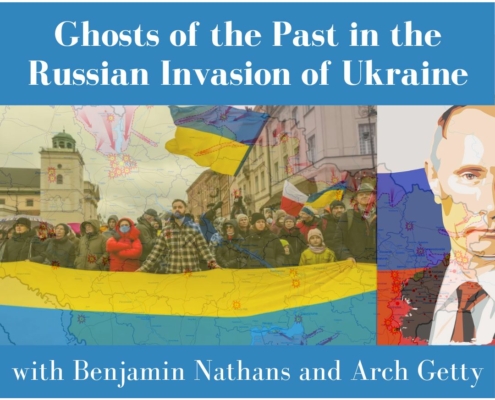 https://luskincenter.history.ucla.edu/wp-content/uploads/sites/66/2023/08/Ghosts-of-the-Past.jpg
1080
1080
LCHP
LCHP2023-09-08 10:55:212023-09-08 10:55:21Ghosts of the Past in the Russian Invasion of Ukraine: Conversations with Historians Benjamin Nathans and Arch Getty. A Special Two-Part Episode (S2 Ep13)
https://luskincenter.history.ucla.edu/wp-content/uploads/sites/66/2023/08/Ghosts-of-the-Past.jpg
1080
1080
LCHP
LCHP2023-09-08 10:55:212023-09-08 10:55:21Ghosts of the Past in the Russian Invasion of Ukraine: Conversations with Historians Benjamin Nathans and Arch Getty. A Special Two-Part Episode (S2 Ep13) https://luskincenter.history.ucla.edu/wp-content/uploads/sites/66/2023/08/End-of-Abortion-Rights-in-the-US.jpg
1080
1080
LCHP
LCHP2023-09-08 10:54:482023-09-08 10:54:48The End of Abortion Rights in the United States? A Conversation with Cary Franklin in the Wake of the Leaked Alito Opinion (S2 Ep18)
https://luskincenter.history.ucla.edu/wp-content/uploads/sites/66/2023/08/End-of-Abortion-Rights-in-the-US.jpg
1080
1080
LCHP
LCHP2023-09-08 10:54:482023-09-08 10:54:48The End of Abortion Rights in the United States? A Conversation with Cary Franklin in the Wake of the Leaked Alito Opinion (S2 Ep18)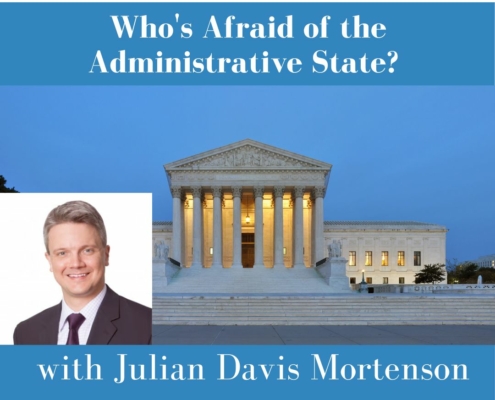 https://luskincenter.history.ucla.edu/wp-content/uploads/sites/66/2023/08/Whos-Afraid-of-the-Administrative-State.jpg
1080
1080
LCHP
LCHP2023-09-08 10:54:102023-09-08 10:54:10Who’s Afraid of the Administrative State? The Supreme Court. A Conversation with Julian Davis Mortenson (S3 Ep1)
https://luskincenter.history.ucla.edu/wp-content/uploads/sites/66/2023/08/Whos-Afraid-of-the-Administrative-State.jpg
1080
1080
LCHP
LCHP2023-09-08 10:54:102023-09-08 10:54:10Who’s Afraid of the Administrative State? The Supreme Court. A Conversation with Julian Davis Mortenson (S3 Ep1) https://luskincenter.history.ucla.edu/wp-content/uploads/sites/66/2023/08/Authoritarianism-and-Patriarchy-from-Ancient-Egypt-to-the-Present.jpg
1080
1080
LCHP
LCHP2023-09-08 10:53:422023-09-08 10:53:42Authoritarianism and Patriarchy from Ancient Egypt to the Present: A Conversation with Kara Cooney (S3 Ep 10)
https://luskincenter.history.ucla.edu/wp-content/uploads/sites/66/2023/08/Authoritarianism-and-Patriarchy-from-Ancient-Egypt-to-the-Present.jpg
1080
1080
LCHP
LCHP2023-09-08 10:53:422023-09-08 10:53:42Authoritarianism and Patriarchy from Ancient Egypt to the Present: A Conversation with Kara Cooney (S3 Ep 10)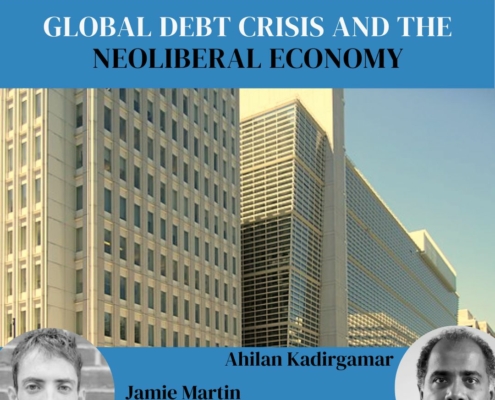 https://luskincenter.history.ucla.edu/wp-content/uploads/sites/66/2023/08/Global-Debt-Crisis.jpg
1080
1080
LCHP
LCHP2023-09-08 10:52:532023-09-08 10:52:53The Global Debt Crisis and the Neoliberal Economy: A Conversation with Ahilan Kadirgamar and Jamie Martin (S3 Ep 14)
https://luskincenter.history.ucla.edu/wp-content/uploads/sites/66/2023/08/Global-Debt-Crisis.jpg
1080
1080
LCHP
LCHP2023-09-08 10:52:532023-09-08 10:52:53The Global Debt Crisis and the Neoliberal Economy: A Conversation with Ahilan Kadirgamar and Jamie Martin (S3 Ep 14)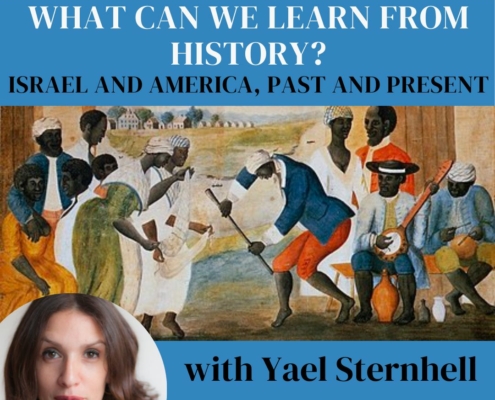 https://luskincenter.history.ucla.edu/wp-content/uploads/sites/66/2023/08/What-Can-We-Learn-From-History.jpg
1080
1080
LCHP
LCHP2023-09-08 10:52:212023-09-08 10:52:21What Can We Learn from History? A Conversation on Israel and America, Past and Present, with Yael Sternhell (S3 Ep 15)
https://luskincenter.history.ucla.edu/wp-content/uploads/sites/66/2023/08/What-Can-We-Learn-From-History.jpg
1080
1080
LCHP
LCHP2023-09-08 10:52:212023-09-08 10:52:21What Can We Learn from History? A Conversation on Israel and America, Past and Present, with Yael Sternhell (S3 Ep 15)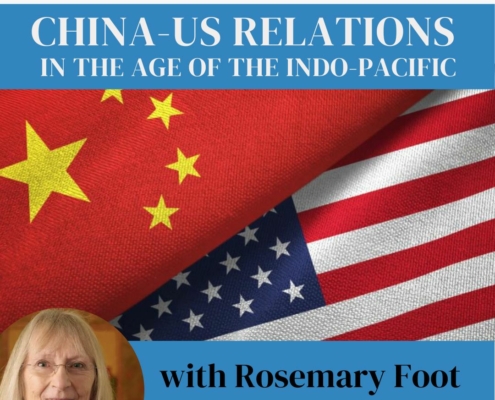 https://luskincenter.history.ucla.edu/wp-content/uploads/sites/66/2023/08/China-US-relations.jpg
1080
1080
LCHP
LCHP2023-09-08 10:51:452023-09-08 10:51:45China-US Relations in the Age of the Indo-Pacific: A Conversation with Rosemary Foot (S3 Ep9)
https://luskincenter.history.ucla.edu/wp-content/uploads/sites/66/2023/08/China-US-relations.jpg
1080
1080
LCHP
LCHP2023-09-08 10:51:452023-09-08 10:51:45China-US Relations in the Age of the Indo-Pacific: A Conversation with Rosemary Foot (S3 Ep9)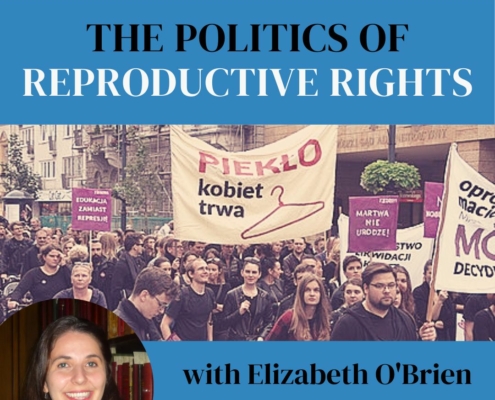 https://luskincenter.history.ucla.edu/wp-content/uploads/sites/66/2023/08/The-Politics-of-Reproductive-Rights.jpg
1080
1080
LCHP
LCHP2023-09-08 10:51:102023-09-08 10:51:10The Politics of Reproductive Rights: A Conversation with Elizabeth O’Brien (S3 Ep19)
https://luskincenter.history.ucla.edu/wp-content/uploads/sites/66/2023/08/The-Politics-of-Reproductive-Rights.jpg
1080
1080
LCHP
LCHP2023-09-08 10:51:102023-09-08 10:51:10The Politics of Reproductive Rights: A Conversation with Elizabeth O’Brien (S3 Ep19)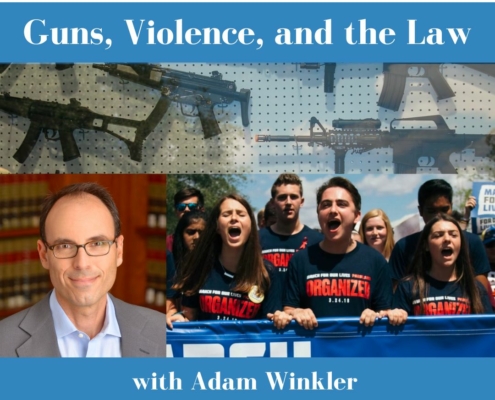 https://luskincenter.history.ucla.edu/wp-content/uploads/sites/66/2023/08/Guns-Violence-and-the-Law.jpg
1080
1080
LCHP
LCHP2023-09-08 10:50:432023-09-08 10:50:43Guns, Violence, and the Law: A Conversation with Professor Adam Winkler (S2 Ep 20)
https://luskincenter.history.ucla.edu/wp-content/uploads/sites/66/2023/08/Guns-Violence-and-the-Law.jpg
1080
1080
LCHP
LCHP2023-09-08 10:50:432023-09-08 10:50:43Guns, Violence, and the Law: A Conversation with Professor Adam Winkler (S2 Ep 20)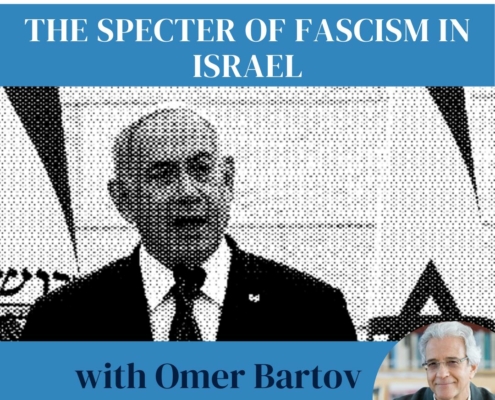 https://luskincenter.history.ucla.edu/wp-content/uploads/sites/66/2023/08/The-Specter-of-Fascism-in-Israel.jpg
1080
1080
LCHP
LCHP2023-09-08 10:50:132023-09-08 10:50:13Israel and the Specter of Fascism Today: A Conversation with Omer Bartov (S3 Ep7)
https://luskincenter.history.ucla.edu/wp-content/uploads/sites/66/2023/08/The-Specter-of-Fascism-in-Israel.jpg
1080
1080
LCHP
LCHP2023-09-08 10:50:132023-09-08 10:50:13Israel and the Specter of Fascism Today: A Conversation with Omer Bartov (S3 Ep7) https://luskincenter.history.ucla.edu/wp-content/uploads/sites/66/2023/08/What-is-Affropessimism.jpg
1080
1080
LCHP
LCHP2023-09-08 10:49:452023-09-08 10:49:45What is Afropessimism? A Conversation with Frank Wilderson (S2 Ep 4)
https://luskincenter.history.ucla.edu/wp-content/uploads/sites/66/2023/08/What-is-Affropessimism.jpg
1080
1080
LCHP
LCHP2023-09-08 10:49:452023-09-08 10:49:45What is Afropessimism? A Conversation with Frank Wilderson (S2 Ep 4)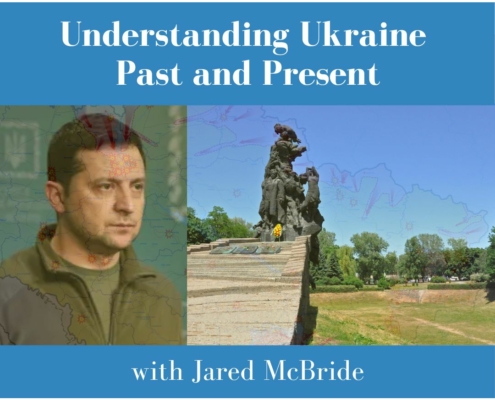 https://luskincenter.history.ucla.edu/wp-content/uploads/sites/66/2023/08/Understanding-Ukraine-Past-and-Present.jpg
1080
1080
LCHP
LCHP2023-09-08 10:48:532023-09-08 10:48:53Understanding Ukraine Past and Present: A Conversation with Jared McBride (S2 Ep 14)
https://luskincenter.history.ucla.edu/wp-content/uploads/sites/66/2023/08/Understanding-Ukraine-Past-and-Present.jpg
1080
1080
LCHP
LCHP2023-09-08 10:48:532023-09-08 10:48:53Understanding Ukraine Past and Present: A Conversation with Jared McBride (S2 Ep 14)
